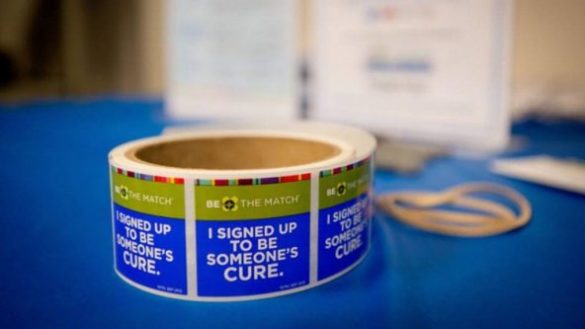Aja Fisher’s dream of becoming a doctor was interrupted when she became a patient. It started with a “sharp, shooting pain down her left leg,” The Florida Times-Union reported. A steroid shot provided relief. But two weeks later, the pain returned and was on the move, affecting Fisher’s back as well. Another injection led to another pain-free two weeks. Then the pain was back and moving again. “It was starting to affect my mobility,” Fisher said. “I feared being paralyzed.”
Soon after, she received “a stunning diagnosis—leukemia.” Fisher “was in shock and in complete disbelief,” she said. But she was also determined. “It wasn’t really an option for me not to fight for my life.”
That fight began in Atlanta, where Fisher was attending college. Chemotherapy initially “sent the leukemia into remission.” When it returned, Fisher decided to return to her hometown of Jacksonville, Florida, and begin treatment at Mayo Clinic. She had more chemotherapy and eventually was told she would need a bone marrow transplant. “I had a lot of questions,” she said. They were answered by “an amazing team and a determined doctor”—James Foran, M.D., a hematologist/oncologist.
One thing Fisher learned was that as an African American, her likelihood of finding a compatible bone marrow donor on the national registry was just 23 percent. “The biggest challenge that we have to find donors to proceed with bone marrow transplantation is ethnicity,” Ernesto Ayala, M.D., a hematologist/oncologist, said. “If I have a patient that belongs to an ethnic minority, then I will only find a donor in the registry in about 20 to 25 percent of cases.”
Thankfully, Fisher’s team did find a compatible donor, three months after she went on the registry. She had a bone marrow transplant in October 2018 and “has since become an advocate for other people who need life-saving bone marrow.” Especially people like her.
Fisher is sharing her story to help raise awareness of the need for donors among minority populations. “I think there is a lack of diversity due to a lack of information,” she said. She wants people to know the registry “is a lifesaver” and “a blessing unlike anything you can imagine, giving someone a chance at life.”
She’s grateful for her chance, and plans to use it to help others. “I still plan to go to medical school,” Fisher said. “I feel as though my future might have oncology in it.”







